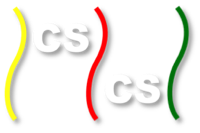Add Vectors Example¶
Here is the code for addVectors.cu
/*
* Sample program that uses CUDA to perform element-wise add of two
* vectors. Each element is the responsibility of a separate thread.
*
* compile with:
* nvcc -o addVectors addVectors.cu
* run with:
* addVectors
*/
#include <stdio.h>
//problem size (vector length):
#define N 10
__global__ void kernel(int* res, int* a, int* b) {
//function that runs on GPU to do the addition
//sets res[i] = a[i] + b[i]; each thread is responsible for one value of i
int thread_id = threadIdx.x + blockIdx.x*blockDim.x;
if(thread_id < N) {
res[thread_id] = a[thread_id] + b[thread_id];
}
}
void check(cudaError_t retVal) {
//takes return value of a CUDA function and checks if it was an error
if(retVal != cudaSuccess) {
fprintf(stderr, "ERROR: %s\n", cudaGetErrorString(retVal));
exit(1);
}
}
int main() {
int* a; //input arrays (on host)
int* b;
int* res; //output array (on host)
int* a_dev; //input arrays (on GPU)
int* b_dev;
int* res_dev; //output array (on GPU)
//allocate memory
a = (int*) malloc(N*sizeof(int));
b = (int*) malloc(N*sizeof(int));
res = (int*) malloc(N*sizeof(int));
check(cudaMalloc((void**) &a_dev, N*sizeof(int)));
check(cudaMalloc((void**) &b_dev, N*sizeof(int)));
check(cudaMalloc((void**) &res_dev, N*sizeof(int)));
//set up contents of a and b
for(int i=0; i<N; i++)
a[i] = b[i] = i;
//allocate timers
cudaEvent_t start;
check(cudaEventCreate(&start));
cudaEvent_t stop;
check(cudaEventCreate(&stop));
//start timer
check(cudaEventRecord(start,0));
//transfer a and b to the GPU
check(cudaMemcpy(a_dev, a, N*sizeof(int), cudaMemcpyHostToDevice));
check(cudaMemcpy(b_dev, b, N*sizeof(int), cudaMemcpyHostToDevice));
//call the kernel
int threads = 512; //# threads per block
int blocks = (N+threads-1)/threads; //# blocks (N/threads rounded up)
kernel<<<blocks,threads>>>(res_dev, a_dev, b_dev);
//transfer res to the host
check(cudaMemcpy(res, res_dev, N*sizeof(int), cudaMemcpyDeviceToHost));
//stop timer and print time
check(cudaEventRecord(stop,0));
check(cudaEventSynchronize(stop));
float diff;
check(cudaEventElapsedTime(&diff, start, stop));
printf("time: %f ms\n", diff);
//deallocate timers
check(cudaEventDestroy(start));
check(cudaEventDestroy(stop));
//verify results
for(int i=0; i<N; i++)
printf("%d ", res[i]);
printf("\n");
//free the memory
free(a);
free(b);
free(res);
check(cudaFree(a_dev));
check(cudaFree(b_dev));
check(cudaFree(res_dev));
}
